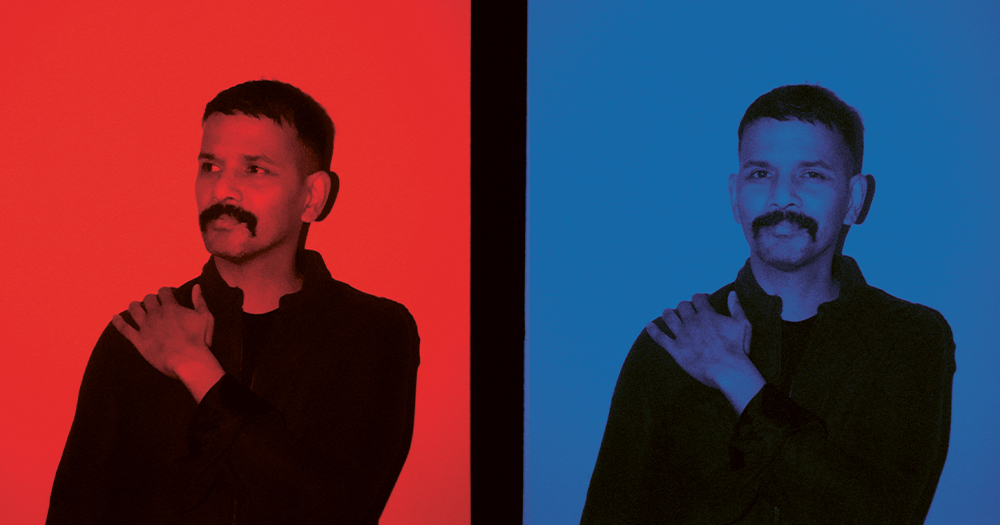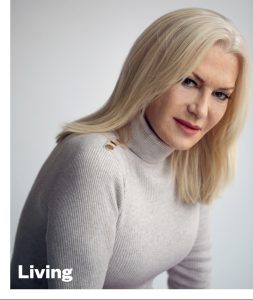Proud AF has given a voice to many unheard stories. The campaign was one of my most memorable and positive times as an activist in Ireland. Gay Project certainly deserves kudos for the bold step of bringing this subject to the forefront, and support from queer allies like Holly Shortall was a breath of fresh air.
A big thanks to Ailsa Spindler, Michael O Donnell and Thomas Heising too. It was also a great pleasure to share space with the ever-inspiring Viola Gayvis, Bulelani Mfaco, Darren Collins and Delroy Mpofu.
View this post on Instagram
As a person of colour, encountering racist experiences and biases among the gay community is not new; people know it exists, but a considerable portion of the queer community, including some community leaders and organisations, hesitate to talk about it. Recently on a summer evening, while walking back home from a gay bar, a group of drunk gay men called me a “Paki f*g”. It was the same group of familiar faces I’d seen earlier at the bar.
In my experience, shame is the most prominent feeling people showed when I tried to talk about racism at the gay scene in Dublin, followed by denial and self defence. Many people in the community refuse to talk about sexual racism and the objectification of human bodies. Unknowingly they reject the purpose of addressing the mental and sexual health issues of queer people of colour.
People congratulated me for being on the cover of GCN and a billboard at The George as part of the Proud AF campaign. It gave tremendous visibility to the campaign, and I am glad that finally, I got a chance to talk about sexual racism and mental health out loud. But it was a moving moment rather than a celebration. There are many more underrepresented intersections that need initiatives like Proud AF to value their stories.
For me, the most exciting part of the campaign was the rare opportunity to connect with gay men of colour from different walks of life. I received a wide range of reactions. Many queer people reached out to me with thanks for giving a voice to their pain. At the same time, I experienced trolling from right-wing folk telling me to go back to India, amongst many other nasty things. Many in the local gay community chose to remain silent. People like to participate on social media rather than engaging with real people, while others think that sharing Black Lives Matters posts is enough to address racism.
Some gay men living in Ireland reached out to debate that people have choices and preferences of certain nationalities and colours, that it is not racism! Some argue that they don’t want to date gay men from the Traveller community or immigrants – they insist it’s their personal choice and not a racist view. Some white men claimed that they hooked up with a Black person in the past or their sister was dating an Asian man; that’s why they are not racist. As Ibram X Kendi said, “The language of colour blindness—like the language of ‘not racist’—is a mask to hide racism.”
I received a comment saying immigrant gay men from “third world countries” bring sexual diseases to Ireland and to keep Ireland HIV free it is essential to stop them coming here. One local gay men suggested that Indian or Asian gay men can be friends or date only people from their own culture as white men don’t like them.
With such a mixture of discussions, I found three main points. Firstly, one campaign is not enough. I discovered that a number of white gay men I interacted with through social media and dating apps unknowingly share a similar point of view with right-wing trolls about the topic of sexual racism and immigration. Prioritising individuals as romantic partners in a way that reinforces ideas of racial hierarchy or stereotypes is acceptable for them. Indirectly they agree on racial favouritism. They see cultural diversity as a threat to their beliefs. Proud AF was meaningless for them.
Secondly, it is a myth that progressive Western societies are a safe refuge for immigrant QPOC – laws and institutions may protect our sexuality, but the community may never accept us wholeheartedly. A conversation with an Asian student studying at a university near Dublin is a good example. He told me how his University LGBT group is not inclusive of gay POC students. Once, a local gay man called him a “virus” during the COVID-19 lockdown because of his Asian looks. In his words, “I have a more challenging time connecting with people here than back home. And back home, I can’t express myself openly. It’s sad to see immigrant gay POC coming from third world countries where they would potentially be in danger because of who they are, to find a ‘safe haven’ here but facing exclusion and rejection again.”
One Indian gay person who lived in Dublin and moved to another part of Europe shared his thoughts – “It was hard for me to be an open gay man in India at a point. But I feel it’s even harder being an Indian gay in Europe. And I am missing a bigger aspect of my life here, not just the sexuality part. Being alone and asking for acceptance every day is not healthy and is making it even worse.”
Third point – there is a tendency to believe that making invisible minorities visible is progress. But that is not true in the practical world; making invisible minorities visible must be treated as a starting point. Visibility alone is a trap; it comes with constant scrutiny by the majority, and thus, the result is isolation. Marginalised people like me don’t care about the rainbow flag, glitter, and Pride floats; it is essential, but it works only for a limited scope. What is missing is the constructive policies to include minorities in mainstream LGBTQ+ leadership, creating awareness about the biases, understanding of lived experiences of racism and its impact on an individual’s personality. The tendency to say ‘we know enough and we will decide for you’ is dangerous. If we have diverse leaders, they will be the role models, and the rest of the system will correct itself.
What I learned through my activism is that diversity and allyship is a lifelong journey. We need to ask ourselves questions like; Do we allow people different from us a space at the table? Are we giving them the right opportunity to thrive? We also need to discuss how we are looking at the term ‘diversity’. Along with gender, sexuality and colour, we also need to include a variety of accents, skin tones, body types, ableism, lifestyles, and cultural backgrounds.
Things won’t change overnight, but the Gay Project team and the Proud AF campaign have done a phenomenal job opening up a discussion on an important issue within the community. I hope more people and organisations will discuss this topic more frequently.
This article originally appeared in GCN Issue 369 which you can read in full here.
© 2021 GCN (Gay Community News). All rights reserved.
This article was published in the print edition Issue No. 369 (December 3, 2021). Click here to read it now.
Support GCN
GCN is a free, vital resource for Ireland’s LGBTQ+ community since 1988.
GCN is a trading name of National LGBT Federation CLG, a registered charity - Charity Number: 20034580.
GCN relies on the generous support of the community and allies to sustain the crucial work that we do. Producing GCN is costly, and, in an industry which has been hugely impacted by rising costs, we need your support to help sustain and grow this vital resource.
Supporting GCN for as little as €1.99 per month will help us continue our work as Ireland’s free, independent LGBTQ+ media.

